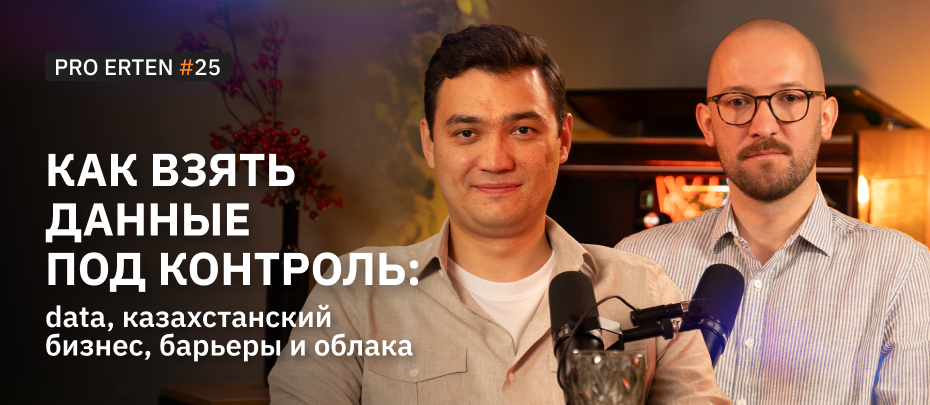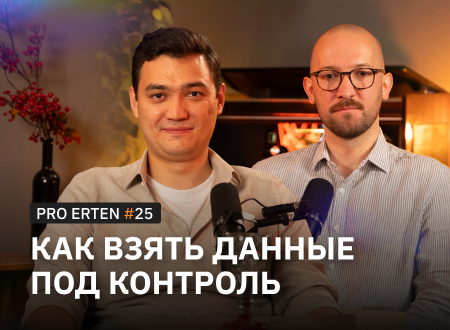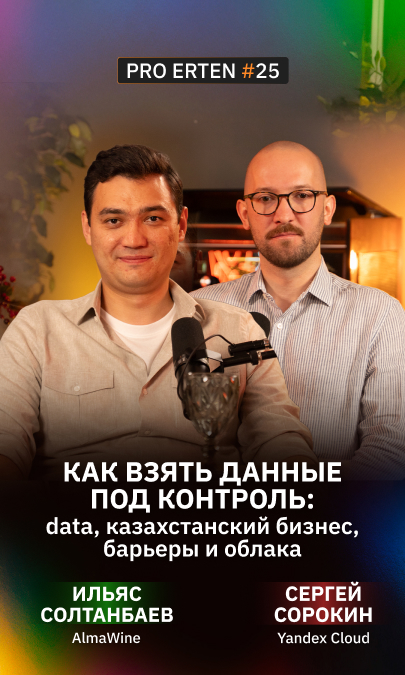Dr Chan Young Bang - once a refugee from North Korea who built a career in the United States and served the government of the Republic of Korea - has become a phenomenal figure in Kazakhstan's history. He founded KIMEP, a private university celebrated for the high quality of its education, its adherence to international standards and the crystal-clear transparency of all its processes. And that is just one of his achievements. Although Dr Bang leads a reclusive life and rarely gives interviews, the ER10 Media team was lucky enough to record and release a full-length film with him. In the IT Hero of our Time series, we followed Dr Chan Young Bang's journey to the top of KIMEP and talked to him about his principles and the university itself.
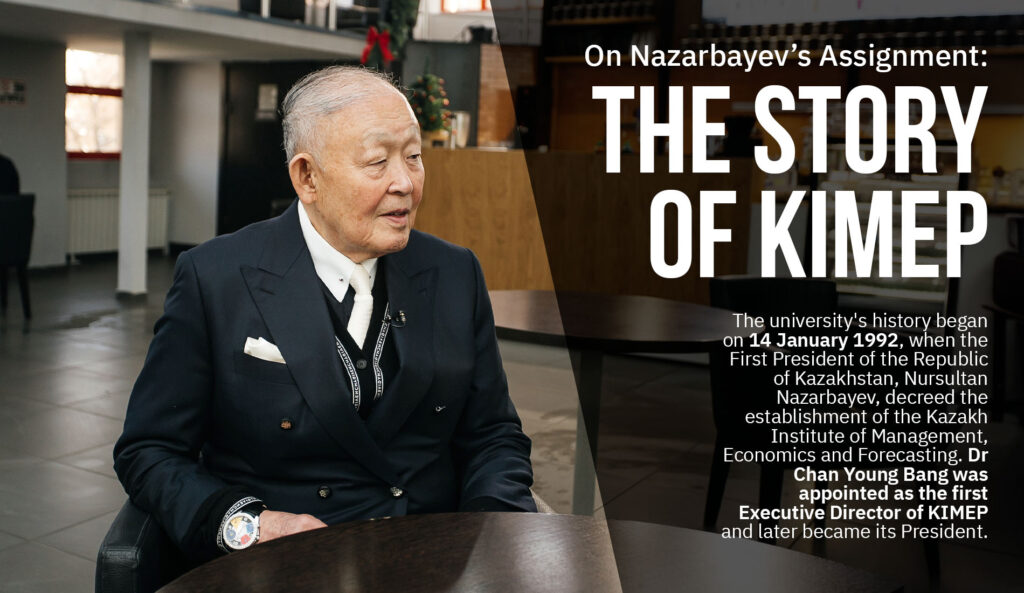
On Nazarbayev’s Assignment: The Story of KIMEP
The university's history began on 14 January 1992, when the First President of the Republic of Kazakhstan, Nursultan Nazarbayev, decreed the establishment of the Kazakh Institute of Management, Economics and Forecasting. Dr Chan Young Bang was appointed as the first Executive Director of KIMEP and later became its President. In 2000, the university came under his trust management, and in 2003 it was re-registered as a non-profit joint-stock company.
"I was a professor doing research while teaching at UCLA and the University of San Francisco. In 1989, President Nazarbayev invited me to Moscow. In a long conversation, he expressed his desire to modernise Kazakhstan's economy and introduce macroeconomic reforms for significant growth," Dr Bang recalls.
Since then, he has been heavily involved in developing the country's education system and economy. He notes:
"When I arrived, the state had virtually no money for new initiatives. The president told me he couldn't even pay me. I replied that I didn't need money, I needed infrastructure. Soon I was given a car and a building that had belonged to the Central Committee and the Higher Party School.
Initially, the university was funded by Dr Bang's personal resources, and KIMEP's graduates were his first major achievement. In 1996 he handed the university over to the state and returned to Korea. Soon, however, the Kazakh president asked him to return: the university was in serious financial trouble and on the verge of bankruptcy. Dr Bang agreed, but on one condition - KIMEP had to become fully independent rather than being run by the state. So the university was privatised and he bought 60 per cent of the shares. From that moment on, KIMEP entered a new phase that has made it one of the leading institutions in Central Asia.
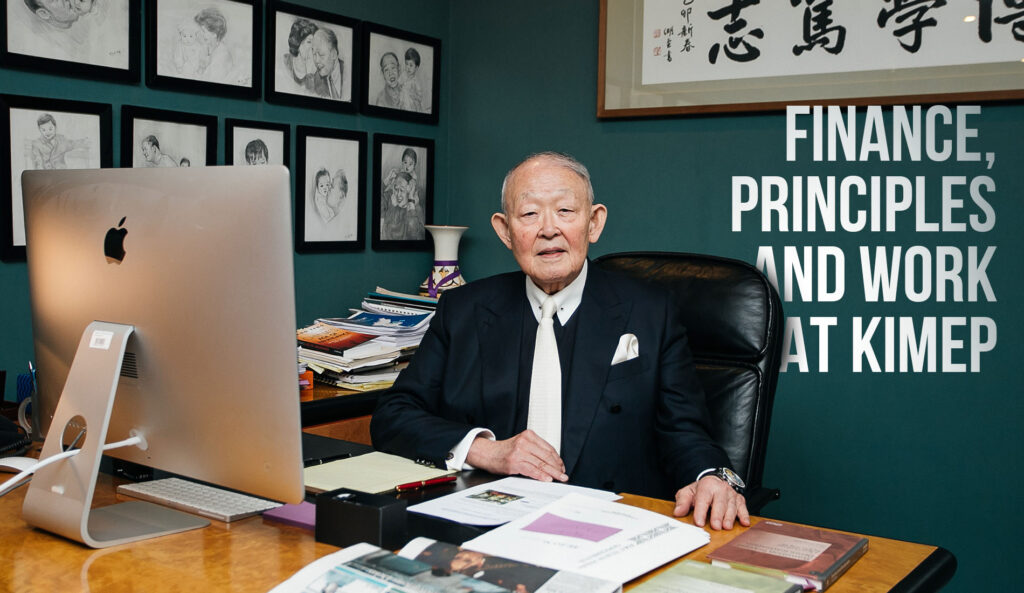
Finance, Principles and Work at KIMEP
"You know, a financial strategy is essential. The university receives no money from the government or elsewhere - funds that many institutions rely on to survive - yet we generate substantial income. Last year we made a net profit of US$3 million, and this year it is US$3.5 million," says Dr Bang.
Financial stability, says the IT hero, is based on two conditions:
- There must be enough students.
- The clients - in this case the students - must value the product.
"The number of students is growing by six per cent a year - about 150 to 160 new students - which keeps us solvent. With a larger cohort and our tuition levels, we have no budget deficit. Our net profit of US$3 million is reinvested in the university. Without stability and continuous quality improvement, a university cannot survive.
"We work every day to improve the level of education we provide. The money students invest in their studies here is a sound investment, with a return on investment of over 30 per cent. That's why many choose us, even when they could study elsewhere for free. They see the difference in quality and are willing to pay," Dr Bang explains.
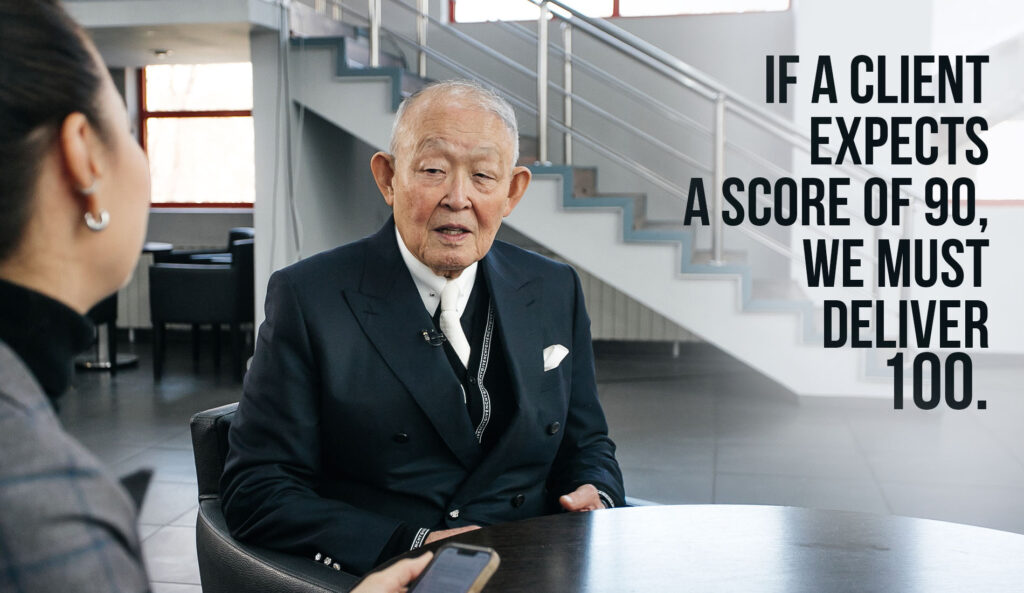
Meeting - and surpassing - student expectations is essential: “If a client expects a score of 90, we must deliver 100. Then they’ll be so impressed they’ll recommend us to others.”
Speaking of staff, many teachers have been with KIMEP for 10, 20, 30 years. The secret, as Dr Bang says, is decent pay and no corruption. In addition, every teacher has the opportunity to develop professionally.
"When inspectors from Europe visit, they're impressed by the motivation and commitment of our teachers and staff. Quite a few professionals who have left come back because they appreciate the atmosphere of academic freedom, clean governance and respect for staff and students," Dr Bang concludes.
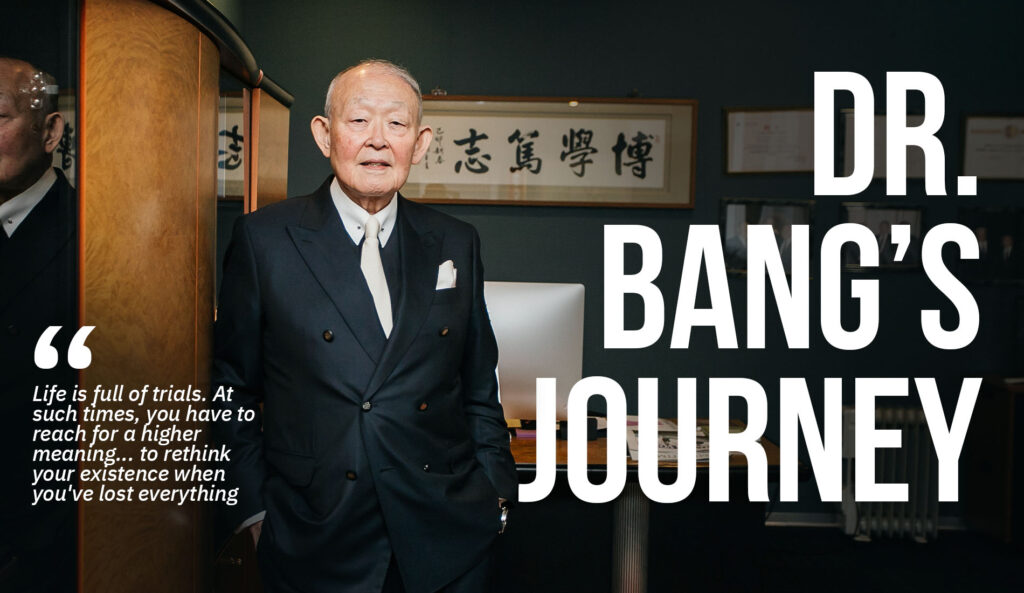
Escape from North Korea, Family and Kazakhstan’s Economy: Dr. Bang’s Journey
Born in North Korea, Dr Chan Young Bang survived war, lost his family and went from refugee to renowned scholar. With a PhD in economics from the University of Colorado, he built a successful academic career in the US. But his destiny became tied to Kazakhstan: in 1990, Nursultan Nazarbayev invited him to be his economic advisor, tasking him with reforming the country in the midst of the post-Soviet crisis. Dr Bang's strategic vision helped Kazakhstan move rapidly towards a market economy and build a modern financial system. But his greatest legacy is KIMEP University, which he founded and turned into a beacon of quality higher education in Central Asia.
North Korea and Family
Dr Chan Young Bang was born in what is now North Korea, then escaped... but still wanted to help those left behind. He later started a family - only to lose it overnight in a tragic accident:
"I lost my whole family when a building collapsed in one night. My daughter, my son, my wife - they were gone. Life is full of trials. At such times, you have to reach for a higher meaning... to rethink your existence when you've lost everything," says Dr Bang.
Kazakhstan
In the late 1990s, our IT hero proposed ideas to boost economic prosperity. Nursultan Nazarbayev listened, but Mikhail Gorbachev refused to implement them. Later, Dr Bang was lucky enough to present his proposals again - this time to Kassym-Jomart Tokayev - and they were adopted at the national level:
"I gave Mr Tokayev recommendations on corruption and economic reforms to improve the economy and the education system. The response was immediate: I was invited to meet the Minister of Education, which made a big impression on me. The Executive Director of the Anti-Corruption Agency arrived with a letter from the President instructing him to study my experience and proposals for greater transparency and anti-corruption. We held a conference and quickly published our findings. The Minister of Foreign Affairs also released relevant material to the media. In this way, my initiatives to reduce corruption and promote good governance were promptly implemented.
Today, Dr Chan Young Bang also writes books. His two most recent, internationally published, deal with the DPRK and its nuclear arsenal: “Each publication demands exhaustive preparation and countless revisions. That’s the essence of serious research - thorough study, critical reflection and the pursuit of perfection.”
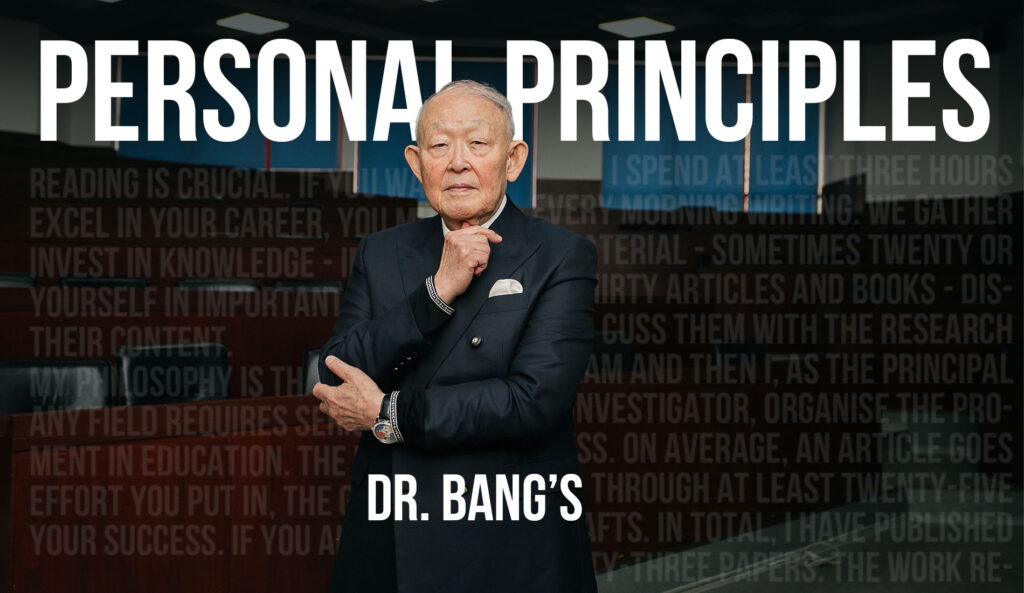
Dr. Bang’s Personal Principles
We have gathered several principles from the film “IT Hero of Our Time,” the full version of which you can find below.
Reading is crucial. If you want to excel in your career, you must invest in knowledge - immerse yourself in important books and their content.
My philosophy is that success in any field requires serious investment in education. The more effort you put in, the greater your success. If you aim for outstanding results, the investment - in reading, learning, skill-building - must be significant.
To succeed in research and publication, choose a topic that deeply matters to you. After choosing, prepare systematically and relentlessly. Each day I set aside several hours for thinking and discussion.
I spend at least three hours every morning writing. We gather material - sometimes twenty or thirty articles and books - discuss them with the research team and then I, as the principal investigator, organise the process. On average, an article goes through at least twenty-five drafts. In total, I have published more than 65 papers. The work requires total dedication and deep research. Every word and sentence is examined and refined.
You need to exercise - any sport you enjoy, but regularly. You can’t train intensely one day and then skip three or four. No. You must make an effort every day. Sport develops not only mental ability but quality of life, helping you see life more positively.
Happiness is a key concept in Aristotle. The philosopher said people are born with immense possibilities and potential, so they must fully use their abilities and strive for excellence. If your talent is business or marketing - if that is your strength - you must work hard, again and again, until you reach the summit. That is where you will find happiness.
Dedication means realising what truly matters in your life. Do you simply earn money and live for your own happiness, or do you use your life and talent to help others, knowing you are improving people’s lives?
Age is just a number. In my experience, the older you get, the more you cherish life and grow wiser. Even in productivity and management skill, my accumulated experience now lets me act more effectively.
If you want to say at the end, “My life was full, fruitful, beautiful,” you must invest in it. You must work on yourself daily, show determination - not only for your goals but to help others. If your purpose is to help people, devote yourself to it. Show empathy, support those in need, and you will gain a deep sense of fulfilment and mission accomplished.
Watch the full episode and share your impressions!
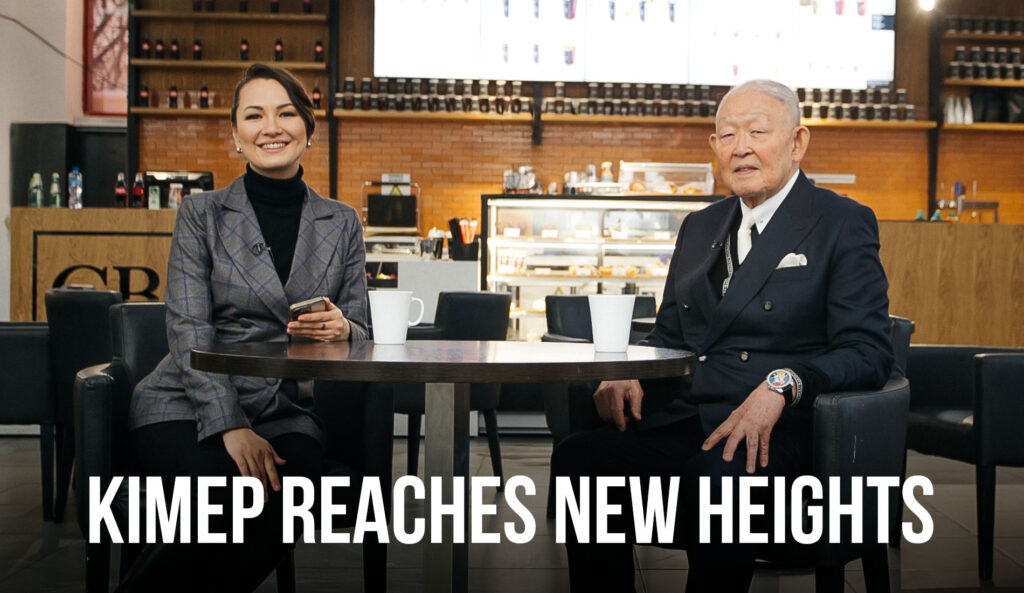
KIMEP Reaches New Heights: The IT Track
To meet the growing global demand for IT professionals and increase the international competitiveness of Kazakh students, KIMEP has begun to strategically expand its IT programmes. In 2017, the university introduced the Bachelor of Information Systems programme and recently launched the School of Computer Science and Mathematics.
The School of Computer Science and Mathematics has introduced several innovations to enhance teaching and research. The new building includes:
- A Networking Technologies and Cybersecurity Laboratory, soon to house a super-computer;
- An IoT and Robotics Laboratory;
- A Physics Laboratory equipped with instruments from PASCO Scientific.
- A Chemistry Laboratory planned for spring 2026 to foster interdisciplinary collaboration.
Which specific programmes or tracks are available?
KIMEP currently offers two IT bachelor’s programmes - Computer Science and Information Systems. Students may choose to specialise in:
- Data Analytics,
- Software Engineering,
- Artificial Intelligence,
- Cybersecurity,
- Big Data Analytics,
- Management Information Systems.
How will admission work? How can students apply?
The official submission of documents for the autumn 2025 undergraduate intake runs from 20 June to 25 August 2025. The University admits students on the basis of their UNT scores and level of English. Applicants must submit their documents electronically through the university portal.


